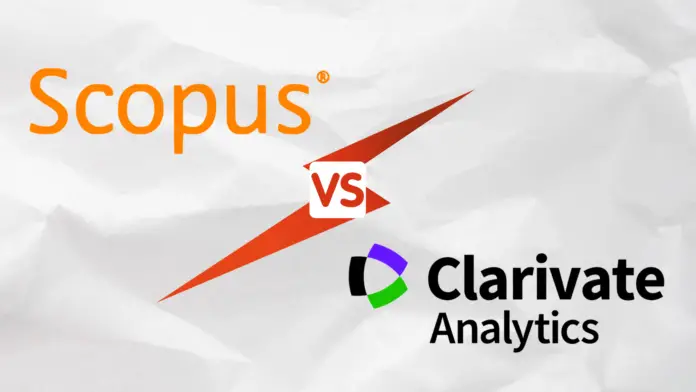Scopus and Web of Science are two of the most popular bibliographic databases used by researchers, students, and professionals to find and access academic journals and research literature.
While both platforms offer similar services, there are some key differences between them. In this article, we will explore the similarities and differences between Scopus and Web of Science.
In this article, ilovephd differentiated the difference between Scopus vs Web of Science journal index.
Scopus:
Scopus is a bibliographic database launched in 2004 by Elsevier, a leading publisher of scientific, technical, and medical content. Scopus covers over 76 million records, including journal articles, conference papers, book chapters, and patents.
Scopus indexes more than 24,000 journals from around the world and provides comprehensive coverage of scientific, technical, medical, and social science fields.
Scopus also provides detailed citation information, including the number of times an article has been cited, and a variety of metrics to evaluate the impact of research, including the h-index, SJR, and SNIP.
Web of Science:
Web of Science is a bibliographic database launched in 1960 by Clarivate Analytics, a global leader in providing trusted insights and analytics to accelerate the pace of innovation.
Web of Science indexes over 20,000 journals from around the world and covers over 100 million records, including journal articles, conference papers, book chapters, and patents.
Web of Science also provides comprehensive coverage of scientific, technical, medical, and social science fields and detailed citation information, including the number of times an article has been cited.
Differences Between Scopus and Web of Science:
- Coverage: Scopus covers more journals and records than Web of Science.
- Citation data: Scopus provides citation data from a wider range of sources than the Web of Science.
- Metrics: Scopus provides a wider range of metrics to evaluate research impact than the Web of Science.
- Collaboration tools: Scopus provides more collaboration tools than Web of Science, such as author profiles and a collaboration network.
- Open access: Scopus includes more open-access content than Web of Science.
Similarities between Scopus and Web of Science:
- Both platforms provide access to academic journals and research literature.
- Both platforms provide detailed citation information.
- Both platforms offer metrics to evaluate the research impact.
- Both platforms cover a wide range of scientific, technical, medical, and social science fields.
Both Scopus and Web of Science are valuable resources for researchers, students, and professionals. While there are some differences between them, such as coverage and metrics, they share many similarities, such as detailed citation information and coverage of a wide range of fields.
Ultimately, the choice between Scopus and Web of Science will depend on the specific needs and preferences of the user.
I hope this article would help you to know the difference between, Scopus vs Web of Science journal indexing databases.
Also Read: Scopus Indexed Journals List 2023

